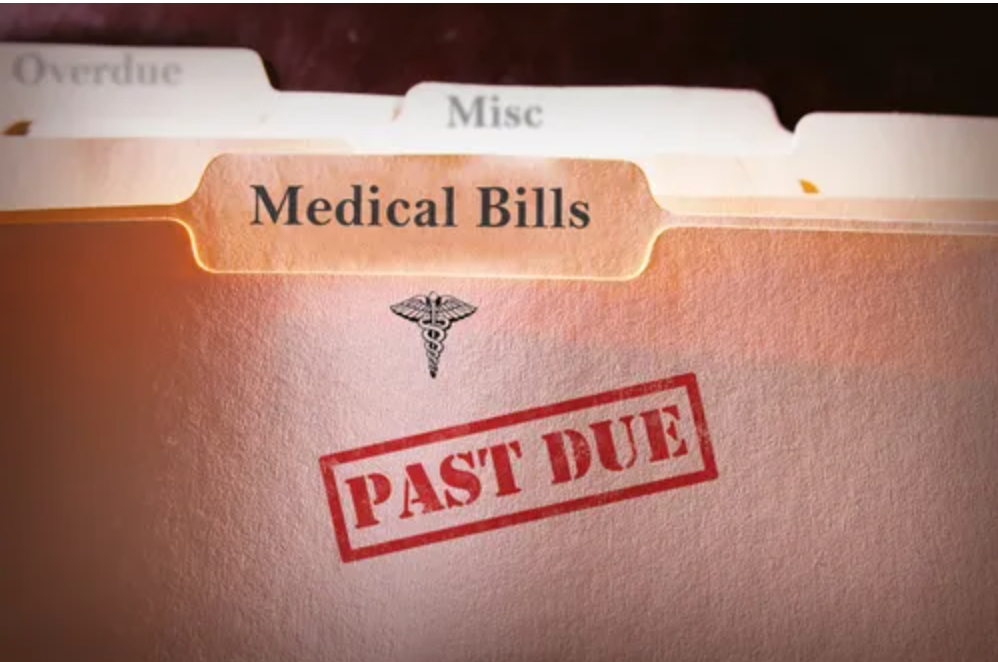Cure for medical debt? Akron to work with nonprofit to erase millions in hospital bills

The city of Akron is hiring a nonprofit organization to negotiate the eradication of millions of dollars of medical debt held by private citizens.
In the last meeting before summer recess, Akron City Council unanimously voted Monday to authorize Mayor Dan Horrigan and his staff to enter a contract with RIP Medical Debt. The organization has worked with dozens of cities, counties and other organizations across the Midwest to payoff private medical bills.
It was the moment Councilwoman Nancy Holland, who was first made aware of medical debt relief by a group of students at Northeast Ohio Medical University, has been working toward since late last year.
Holland, joined by council leadership and Deputy Mayor Marco Sommerville, launched a public campaign in March to convince Horrigan of the merits of the plan. Council passed a resolution days later urging the Horrrigan to find unspent federal dollars from the American Rescue Plan Act to seed the program.
The mayor responded by saying he’d commit $500,000 to the effort. The legislation passed Monday allows the city to draw up a contract with RIP Medical Debt for that amount, giving the organization enough money to leverage the retirement of up to $50 million in medical debt held by Akron residents and their families.
“So many people have asked, 'Is this ever going to happen?” Councilwoman Holland said Monday.
“This is one of the biggest causes of becoming unhoused, becoming divorced, becoming bankrupt and sliding into depression and substance abuse issues. So, this is a very big deal,” Holland said of the burden of medical debt .
“For those of you watching and wonder what (happens) next?” Holland said to people viewing the council meeting online. “You don’t have to do anything.”
How the process will work
Finance Director Steve Fricker agreed.
“This is not something that our individual citizens will sign up for or apply for. So, I just want to be clear about that,” he explained.
Once the contract is in place, RIP will buy medical debt in bulk in batches without personal information from the city’s three major hospitals at a discounted rate. In other municipal deals, the organization founded in 2014 by a former debt collection executive has been able to buy and retire $100 in debt for every dollar it’s been given to spend. The organization has or is working with Chicago and the county surrounding it, Toledo and Lucas County, Cleveland and Columbus.
In each deal, debt is purchased from the hospitals. Based on federal guidelines tied to the spending of ARPA funds, RIP uses a standard formula to determine eligibility. Individuals and families must hold debt equal to at least 5% of their annual income. And annual income must be no more than four times the federal poverty level, which comes out to about $111,000 for a family of four.
The debt holder will not know their medical bills have been paid off until they get a letter saying so.
What is RIP Medical Debt?: Some Ohio cities are erasing their residents' medical debt. Here's how it works
How far will $500,000 go?
No one knows the total medical debt held by eligible Akron families. That’s something RIP can typically determine within three to six months of signing negotiating with hospitals after it signs a contract with a local government like the city of Akron, said Fricker.
The total debt and negotiating power of RIP will ultimately determine how far the $500,000 goes.
“It all depends on what the universe of debt that is out there is. It’s unclear at this point what percent of the debt will be cleared … until they work with the hospitals to see what that debt portfolio is,” Fricker said.
Reach reporter Doug Livingston at dlivingston@thebeaconjournal.com or 330-996-3792.
This article originally appeared on Akron Beacon Journal: Akron hires RIP Medical Debt to erase $50 million in medical bills

